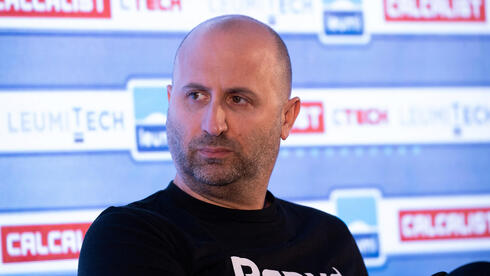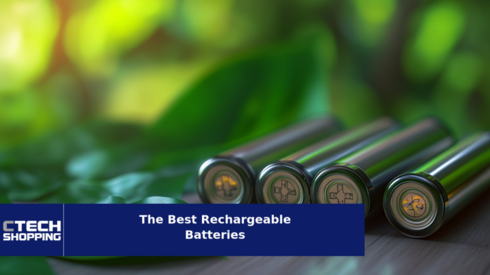
The Best Rechargeable Batteries of 2024: Reviewed
The Best Rechargeable Batteries of 2024: Reviewed
Why settle for single-use when you can power up with the best rechargeable batteries? Discover top Amazon picks that bring you endless energy, eco-friendly vibes, and wallet-friendly savings.
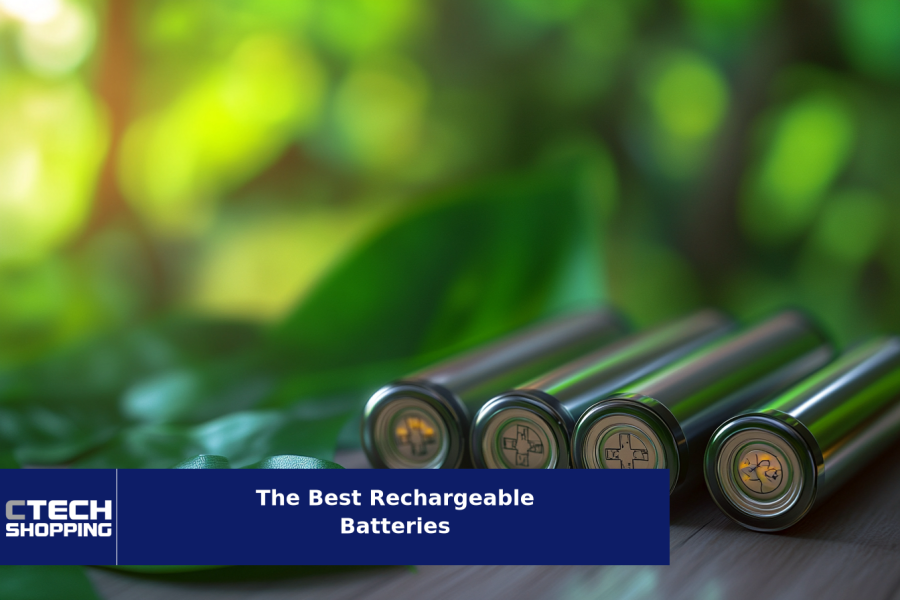
The reviews of the products in this article are created by a team of experts that is independent from CTech's editorial team. If you make a purchase through the links mentioned below, we may receive a commission.
Our Top Picks
Sick of constantly tossing out dead batteries? It's time to level up your power game with rechargeable batteries that deliver the goods every time. These batteries are the ultimate life hack for your devices: saving you serious cash and cutting down on e-waste while giving you more power for your tech, from gaming controllers and cameras to remotes and toys. This means you don’t have to deal with last-minute sprints to the store when your gear runs out of charge. These rechargeable batteries are always ready to save the day. Plus, they’re a total win for the planet. Ready to discover the best rechargeable batteries on Amazon? We've rounded up the top picks that’ll keep you plugged in and ready. Let’s go!
1 . Eneloop Rechargeable Batteries
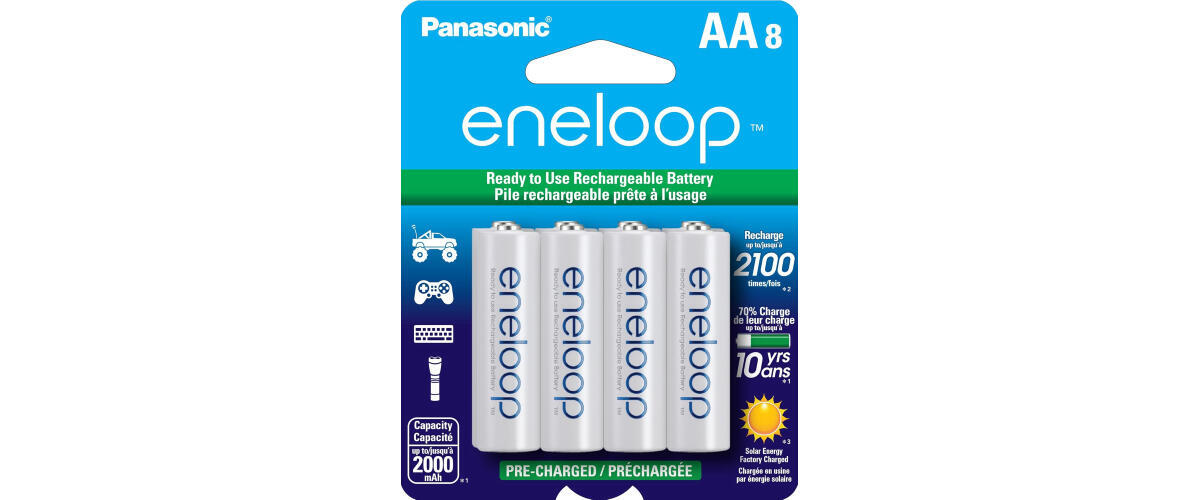

If you’re done spending money on batteries that continue to die on you, these rechargeable batteries may be the perfect solution for your wallet. With up to 2100 recharge cycles, these rechargeable batteries are a great option for anyone tired of constantly replacing batteries. This makes them a smart and eco-friendly pick. Arriving pre-charged (using solar power!) and ready to go, they can hold up to 70% of their charge even after 10 years of storage. Plus, they’re built to withstand even the coldest temperatures down to -4°F, and are perfect for everything from remote controls and flashlights to game controllers and digital cameras.
Pros
Rechargeable up to 2100 times, Ready to use right out of the box, Handles extreme temperatures
Cons
Loses some charge when not in use

2 . Energizer Rechargeable Batteries
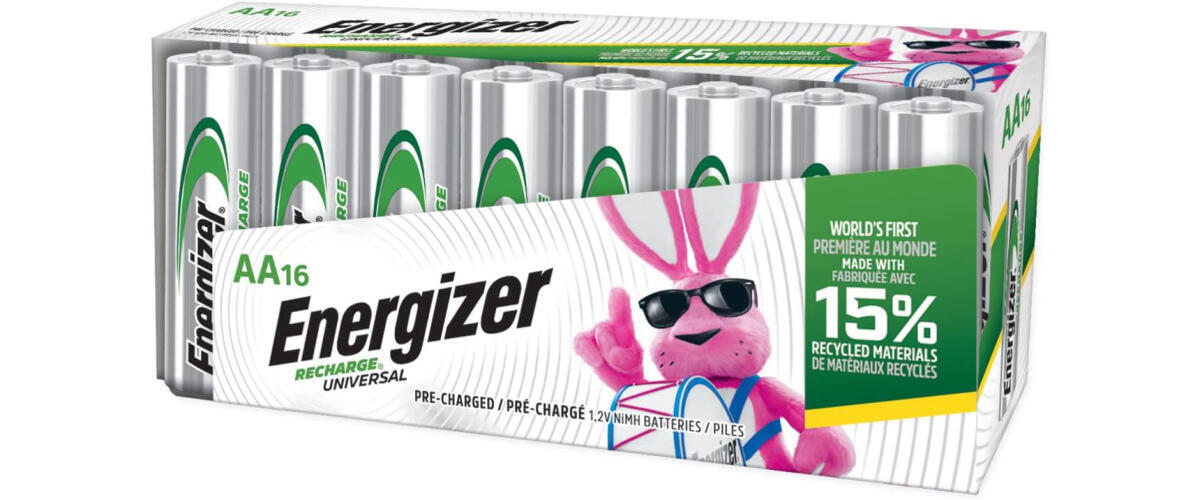

We found these rechargeable batteries your go-to for reliable and eco-friendly power. This pack of 16 pre-charged batteries is perfect for anyone looking to cut down on waste and save money over time. Plus, you get 16 batteries in a pack offering an excellent value for money in the long run. These NiMH batteries can last up to 5 years and are made with 15% recycled materials. This makes them a greener choice. Charge them up to hundreds of times and use them across a wide range of devices, from remotes to toys. They’re also designed to prevent leaks, so you can trust them for worry-free use.
Pros
16-pack offers great value, Lasts up to 5 years, Made with 15% recycled materials
Cons
Suitable for people demanding lower capacity batteries

3 . Amazon Basics Rechargeable Batteries
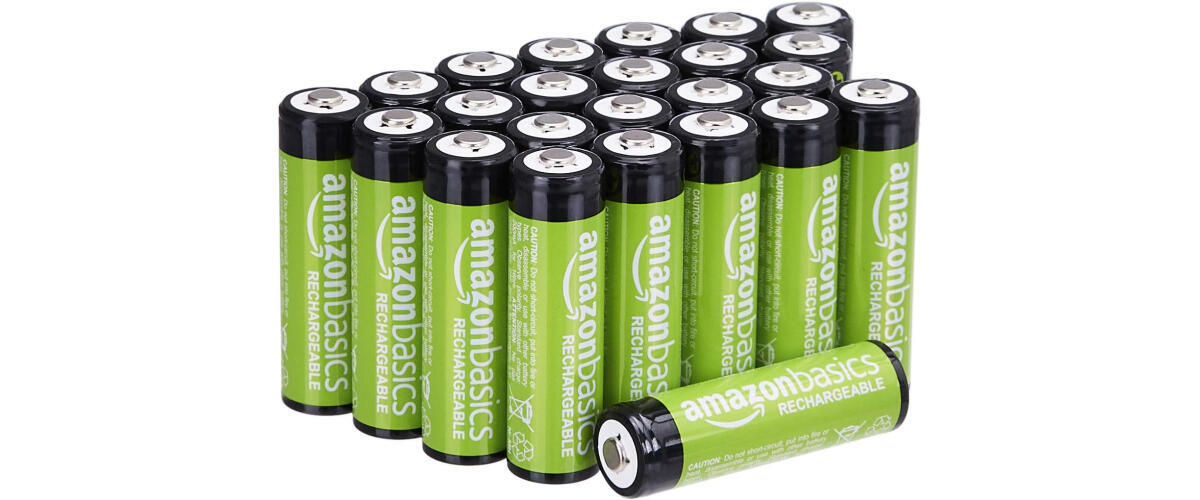

These are considered one of the best rechargeable batteries as they bring solid value and performance with a 24-pack of 2000mAh batteries. These batteries are ready to power your everyday gadgets. Best part? They can be recharged up to 1000 times and prove to be a cost-effective choice for everything from remote controls to flashlights. With a low self-discharge rate, they can maintain up to 80% of their charge for 2 years, so they’re ready when you need them.
Pros
24-pack provides great value, Can be recharged up to 1000 times, High capacity of 2000mAh
Cons
Some units may not be completely charged

4 . EBL Rechargeable Batteries
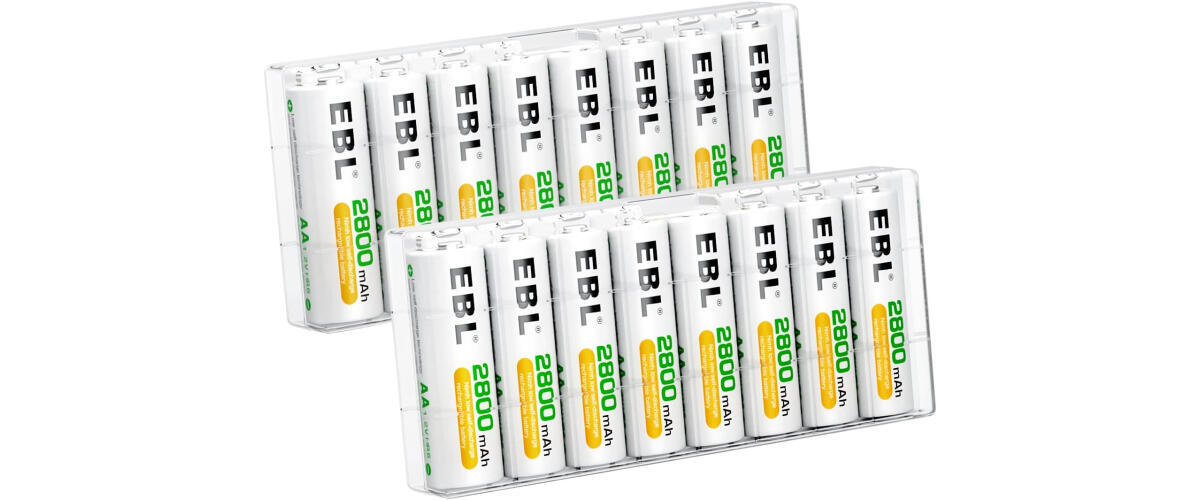

If you’re looking for high-capacity batteries, these could be your best bet. These batteries are an excellent choice with their impressive 2800mAh capacity, providing extra-long usage for all your high-drain devices. Plus, these batteries are equipped with ProCyco technology and are built to maximize performance through 1200 recharge cycles. This ensures you get the most out of each charge. Also, they maintain a steady voltage even under heavy loads – thanks to the supercell lattice technology. Additionally, their low self-discharge feature helps them retain 80% of their power after 3 years for long-term storage.
Pros
High capacity of 2800mAh, Rechargeable up to 1200x for long-lasting performance, Eco-friendly and safe
Cons
High capacity may result in longer charging times

5 . POWEROWL Rechargeable Batteries
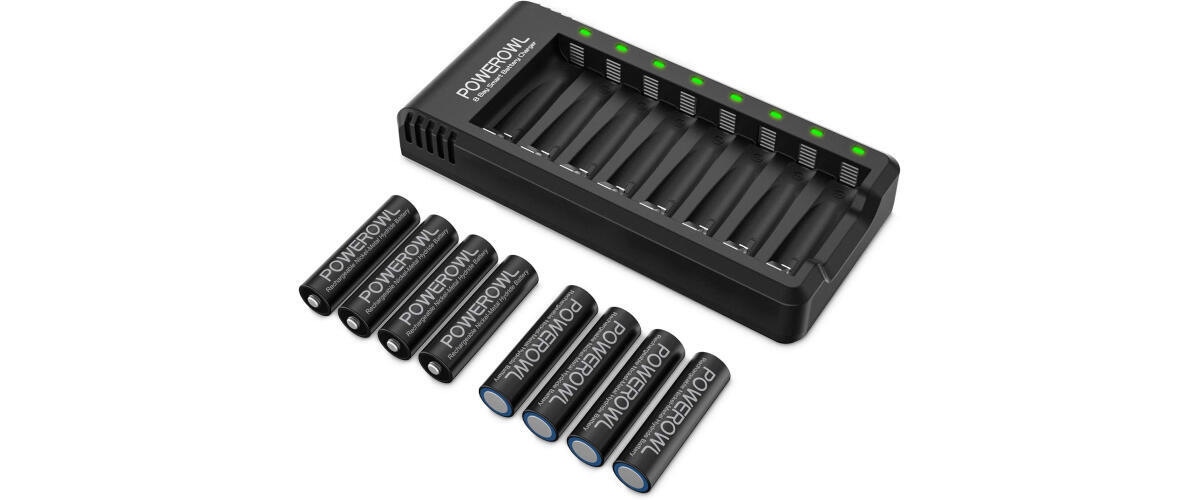

In this pack, you get 8 high-capacity 2800mAh batteries and a smart USB-compatible 8-bay charger that makes powering up easy and efficient. This charger features independent charging slots, so you can mix and match AA and AAA batteries without any hassle. Moreover, the charger automatically stops when fully charged since it’s equipped with chip control technology. Not only does it save the batteries from overcharging but also extends battery life. These eco-friendly Ni-MH batteries can be recharged up to 1200 times and are perfect for high-drain devices like cameras and flashlights.
Pros
2800mAh batteries for longer-lasting power, Includes a smart 8-bay USB charger, Chip control technology
Cons
Provides only 1.2V output

6 . BONAI Rechargeable Batteries
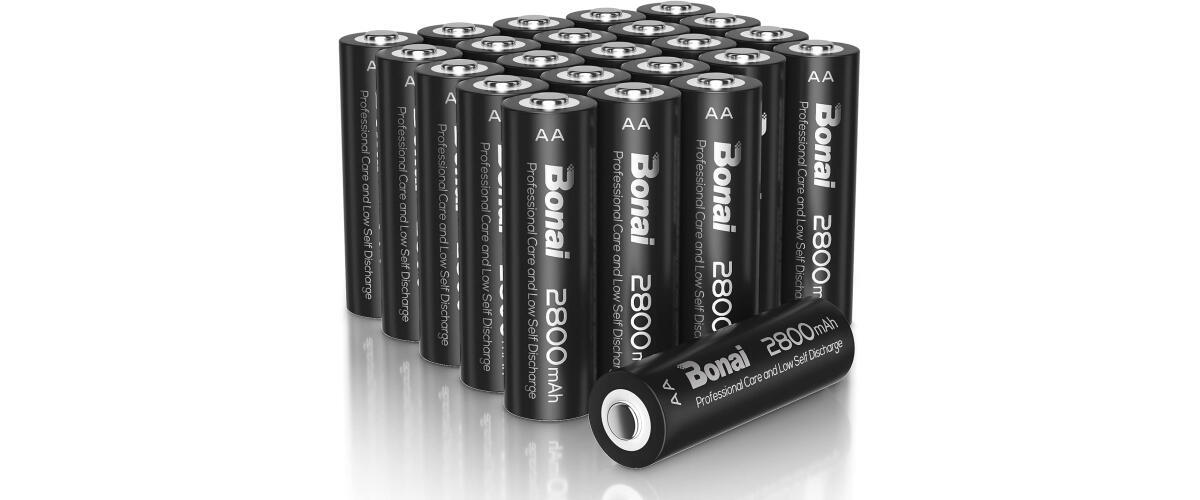

Here’s another pack of rechargeable batteries that offer unbeatable value and performance with 24 of 2800mAh powerhouses. These high-capacity Ni-MH batteries can be recharged up to 1200 times and serve as a smart choice for anyone looking to save money and reduce waste. The batteries come pre-charged, so you can start using them right away, and their low self-discharge feature helps them retain 80% of their capacity even after 3 years of storage. With these batteries, you’re not just getting a reliable option but you’re also getting responsive customer service ready to help if any issues arise.
Pros
Suitable for use across multiple devices, Rechargeable up to 1200 times, Ready to use straight out of the box
Cons
Quality control can be inconsistent

7 . BATZONE Rechargeable Batteries
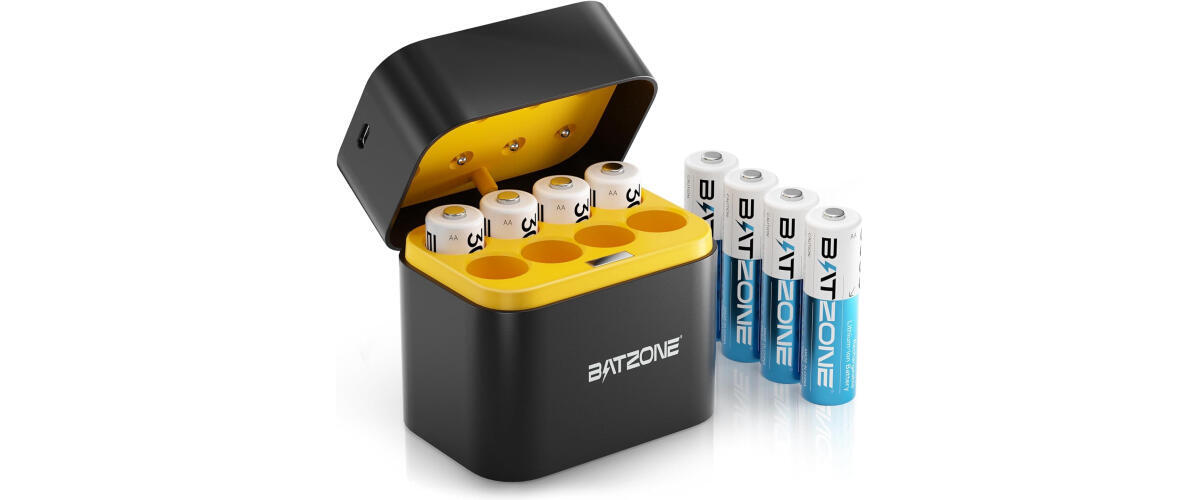

These rechargeable batteries boast a high capacity and deliver consistent 1.5V output to keep your devices running smoothly until the very last drop of power. They are designed for heavy use and will save you money over time since they come with a lifespan of up to 1600 recharge cycles. The fast charger offers 2.5-hour quick charging with a convenient Type-C port and makes it easy to charge anywhere. You can charge it via a laptop, power bank, or car charger. These are also perfect for high-drain devices like game controllers, cameras, and smart home gadgets.
Pros
Offers great longevity and cost savings. Independent 8-slot charger, 2.5-hour fast charging with versatile ports
Cons
Capacity labeling in mWh instead of mAh

FAQ
Q: Are rechargeable batteries really worth the investment compared to single-use batteries?
A: Absolutely! Rechargeable batteries may have a higher upfront cost, but they save you money in the long run. A good rechargeable battery can be used hundreds or even thousands of times, compared to a single-use battery that’s tossed after one use. Plus, they offer consistent power output, making them a better option for high-drain devices like digital cameras, game controllers, and wireless keyboards. And let’s not forget the environmental benefits — fewer batteries in landfills mean a smaller carbon footprint.
Q: Do rechargeable batteries lose their charge when not in use?
A: Yes, rechargeable batteries do lose some charge over time, but the rate varies based on the type. NiMH (Nickel-Metal Hydride) batteries, for example, tend to have a lower self-discharge rate, especially if they are low self-discharge (LSD) models. These can retain up to 70-85% of their charge even after a year of storage. Lithium-ion rechargeable batteries generally have an even lower self-discharge rate, making them a great choice for devices you don’t use frequently.
Q: How long do rechargeable batteries typically last before needing to be replaced?
A: The lifespan of a rechargeable battery depends on its type and how often it’s used. NiMH batteries usually last through 500-1,000 recharge cycles, while high-quality lithium-ion batteries can handle up to 1,500-2,000 cycles. On average, this translates to about 3-5 years of regular use. However, with proper care, such as avoiding overcharging and using a quality charger, you can extend their life even further.
Q: What’s the difference between mAh and mWh in rechargeable batteries?
A: mAh (milliampere-hour) and mWh (milliwatt-hour) are both measures of a battery's capacity, but they tell you different things. mAh indicates the amount of current a battery can provide over time, while mWh measures the total energy stored. In general, mAh is more commonly used for NiMH batteries, and mWh is often seen on lithium-ion batteries. Higher numbers mean a longer runtime, but be aware of the voltage differences — a 1.2V NiMH battery with 2000mAh may perform differently than a 1.5V lithium battery with 3000mWh.
Q: Can you mix rechargeable and non-rechargeable batteries in a device?
A: No, you should avoid mixing rechargeable and non-rechargeable batteries. They have different voltages and discharge rates, which can lead to uneven power distribution, potential leaks, or even damage to your device. Rechargeable batteries typically provide 1.2V per cell, while non-rechargeable alkaline batteries offer 1.5V. Using them together could cause the rechargeable batteries to discharge faster and the non-rechargeable ones to overheat.
Article Contributors
Ctech Shopping Team
CTech's Shopping team brings you the latest in tech through carefully crafted reviews and guides, independent of their editorial team. As a reader-supported entity, our tech-savvy writers and editors sometimes incorporate AI in their analyses to verify the precision of product dimensions, availability, and pricing.
These product recommendations are designed to help you pick the best product for your needs.







